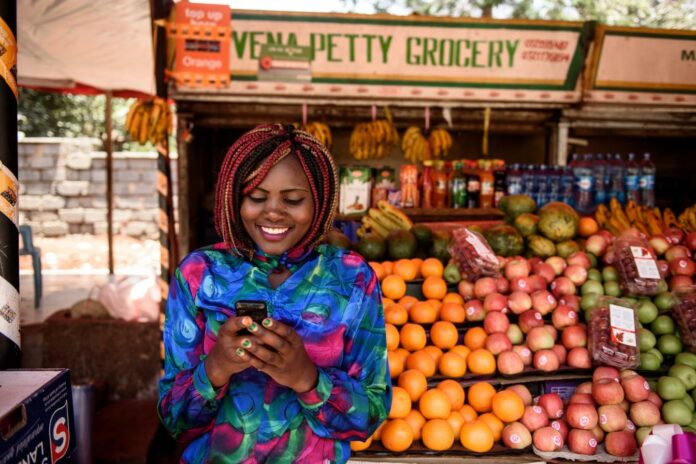Financial exclusion remains a pervasive issue for many women across the East African region. While the barriers driving exclusion are multi-dimensional, spanning socioeconomic, geographic, and demographic two of the most salient obstacles are the lack of adequate supporting policies and digital literacy gaps.
Promoting accountability for women’s financial inclusion is critical in the digital age due to the persistent gender disparities in access to financial services. According to the World Bank Financial Inclusion Database, there is a 9% global gender gap in access to formal bank accounts.
In Kenya only 42% of women have access to digital finance, while in Uganda and Tanzania only 38% of women and 35% respectively have access. According to experts this calls for urgent intervention to enable women to thrive economically.
“We must ensure that women in rural and urban areas have equal access to the tools and resources needed to drive the digital economy. Women should be both participants and leaders in financial inclusion, entrepreneurship, and education,” said Mrs Graca Machel the founder of Graca Machel Trust at a 1-day East Africa Community (EAC) regional convening on Women’s financial inclusion in the digital economy that took place on Thursday July 25.
One of the women business entrepreneurs who has experienced this first hand is Ms Maureen Amakabane.
“I was edged out of three businesses because I was not the owner of capital. I couldn’t access a loan, so I had to get partners to invest in the ideas, and they soon kicked me out. My turning point came when I applied for an online entrepreneurship training and I got some seed funding after completion. I took the business lessons and continue to use them daily,” Maureen who quit her job to start a business spoke on the barriers.
Maureen says while the digital space gives women access to opportunities such as a market place, grants, partners, learnings, and many more its unfortunate many are locked out financially.
“In Kenya 80% of women save through Mpesa. Interestingly, banks do not accept Mpesa statements as proof of financial records. How then can we say we are inclusive? We must distribute money through the channels where women are in,” the business woman who runs Nyayo Moms Sokos Limited a platform that empowers women entrepreneurs through impactful training programs and digital marketplaces, says.
Kenyans losing Sh. 150 million every year to Schengen countries visa denials
Maureen says that despite being a serial entrepreneur access to formal credit is still a major challenge.
“I don’t have enough collateral they tell me. I have had to pack some business ideas as no bank will loan me serious money,” Maureen who also runs Usafi Sanitation Limited and is a co-founder of Beyond Colours, says.
One of the fresh solution fronted as being able to counter this narrative is through the use of Artificial Intelligence (AI).
“We use predictive AI to predict consumer behaviour at Safaricom. Women have unique characteristics and through AI, we can create unique models for them which would prove their credit worthiness and group women with specific traits. This will help us to finance adequately that woman dairy farmer in the village as we can now tell their milk production level, how regularly she sells, what she gets, and how she uses the money,” said Ms Esther Waititu, the Chief Financial Services Officer at Safaricom.
Esther noted that technology will help bridge the digital and financial divide through customised solutions, leveraging data analytics and use of AI.
“We are in the process of localizing AI to our local context as presently there is a lot of Western biases, in the technology. But we will get there soon,” Ms Waititu revealed.
In a country with 117% mobile penetration and 60 million mobile money users, Kenyas last mile will be to ensure that everyone is able to access digital finance. However, it was noted that while the marketplace has shifted online many women still use feature phones.
“Women need the right tools to access opportunities. We also need to advance digital literacy. It takes collaboration for that to happen,” said Ms Caroline Armstrong, the chairperson, New Faces New Voices, Kenya at the convening.
Other solutions towards putting money in women’s hands were proposed as the need to build and retain regional partnerships through public-private partnerships, promote financial literacy and capacity building for women, provide relevant, accessible and innovative products for women, prioritise evidence-based policies, and expand access to digital tools and infrastructure. The experts also agreed that providing safe and equitable access, strengthening cross-border trade and raising awareness and transparency across the digital tools will accelerate the digital financial inclusion of women.
“East African region is already empowered as it has a parliament that can guide the rest of Africa in consolidating a common action that covers all citizens across the region. The region has the most vibrant countries when it comes to digital inclusion and can be a reference point to others,” said Mrs Machel while adding that there is need to map out data for each country to understand the difficulties women face while accessing digital finance. She also noted there is a need to identify the relevant and strategic partners and measure the progress of interventions regularly.
“Tell us where the money is, take us where the money is and more importantly put the money in our hands,” rallied Ms Amakabane.









